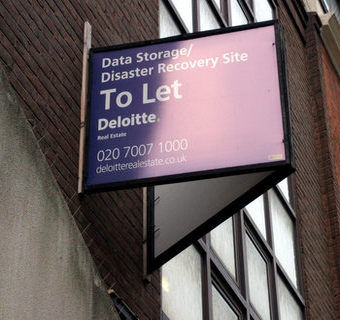Nothing is constant in this world. You may think that it only applies to people but we fail to realize that the planet itself is changing and has undergone a multitude of changes since time immemorial. These changes happened for millions of years leading to the world that we know of today. It’s funny that most people are oblivious that these changes are actually in the form of natural calamities especially flooding and earthquakes that depicts movements in the earth’s plates.
 For now, we may feel invincible and super reliant on our modern-day gadgets to keep us safe from most harms when in reality they are just as vulnerable as you in the face of Mother Nature’s wrath. Your risks double when you have a business that serves as your bread-and-butter that you need to also protect at all times. Data, most especially, is one of the most important things you need to protect because the success and continuity of your business are highly dependent on it. Since we can’t tell or stop a disaster from happening, the best we can do is to prepare for it so that your business still prospers even in its wake.
For now, we may feel invincible and super reliant on our modern-day gadgets to keep us safe from most harms when in reality they are just as vulnerable as you in the face of Mother Nature’s wrath. Your risks double when you have a business that serves as your bread-and-butter that you need to also protect at all times. Data, most especially, is one of the most important things you need to protect because the success and continuity of your business are highly dependent on it. Since we can’t tell or stop a disaster from happening, the best we can do is to prepare for it so that your business still prospers even in its wake.
You can take steps to help ensure that your business is one of those that can recover after a disaster, even when your facilities are destroyed and even when your employees are scattered to the wind. But you can't do so by just by hoping. Passivity is the enemy of any effective disaster recovery (DR) plan.
Instead, you must start proactively planning for tomorrow's disasters today. This means that you need to consider all of the factors that are critical to the survival of your business and to the return of your business after the disaster is over. Those factors need to include data protection and preservation, as you'd expect, but there's more to recovery than just having good data backups. In fact, there are factors that are at least as important as your company's data. These factors include your employees, a facility from which to work, a temporary production environment, and support services such as internet and telephone. Miss any of those and you won't be in business even if you've backed up every bit and byte.
(Via: https://www.pcmag.com/article/364434/how-to-make-sure-your-business-survives-a-disaster)
Planning is the first step you must take and that includes having a disaster recovery plan in place. If possible, try to include your physical devices in the preparation because they are also costly investments that you can’t easily replace in the snap of a finger but more so with your business data that is the backbone of your business operation. Make sure you back everything up while you still can because there are plenty of data that are irreplaceable and can make or break the success of your business.
Another important step you should not forget is to communicate your plan to all your employees because what use is a plan when nobody would put it into practice when the need for it arises.
-
Test Your Plan
You cannot simulate an actual hurricane or lightning strike, but you can test your plan under simulated conditions. Doing a test is a way to see if staff members know how to follow the right procedures and if your backups are easily accessible.
Did your team gain access to cloud backups quickly during the test? Did everyone understand their specific role? Testing should answer these types of questions. Any deviations from the plan warrant some retraining and review of the plan in case conditions or best practices have changed.
Perhaps the testing shows flaws in the team's security and password procedures, or exposes the need for expanded cloud storage to include all of the firm's data.
(Via: https://www.technewsworld.com/story/85627.html)
Now that you have everything laid out, do not forget to test your plan before you even experience any real calamity at all. Sometimes you may think that your plan is perfect only to realize that it has many flaws once you put it into use. Test your plan and find out where you can still improve. This is why fire and earthquake drills are always conducted because it can truly make a difference when the real thing happens. People’s familiarity with the routine will somehow prevent them from panicking and help them react better than a person who never had any experience with such drills. The same thing applies to disaster recovery plans. You’ll also be able to get feedback from your employees about things you may have overlooked and can improve on during these simulations.
The cloud can help a lot in the midst of a disaster especially in protecting and saving your precious files. You’ll have higher chances of being able to access your data in the aftermath of a calamity rather than store them in physical storage devices located in your own offices.
If you are an ordinary computer user and having problems with your devices because of water or fire exposure, these pages: https://www.harddrivefailurerecovery.net/disaster-recovery-and-recovering-fire-damaged-hard-drives/ and https://www.harddrivefailurerecovery.net/hard-drive-gets-water-damaged-what-to-do/ may help.
The following blog article Is Your Business Ready For The Next Catastrophe? is courtesy of http://www.harddrivefailurerecovery.net
source https://www.harddrivefailurerecovery.net/is-your-business-ready-for-the-next-catastrophe/
No comments:
Post a Comment